You may enjoy spending time with your plants because it helps you relieve stress, but that is only one of the many benefits of gardening. Whether growing a large vegetable garden or small ornamental (and great-smelling) flower garden, the physical and mental benefits are plenty. Butterfly gardens, rock gardens, English landscape gardens, and windowsill herb gardens have been delivering mind and body benefits to folks with green thumbs for thousands of years.
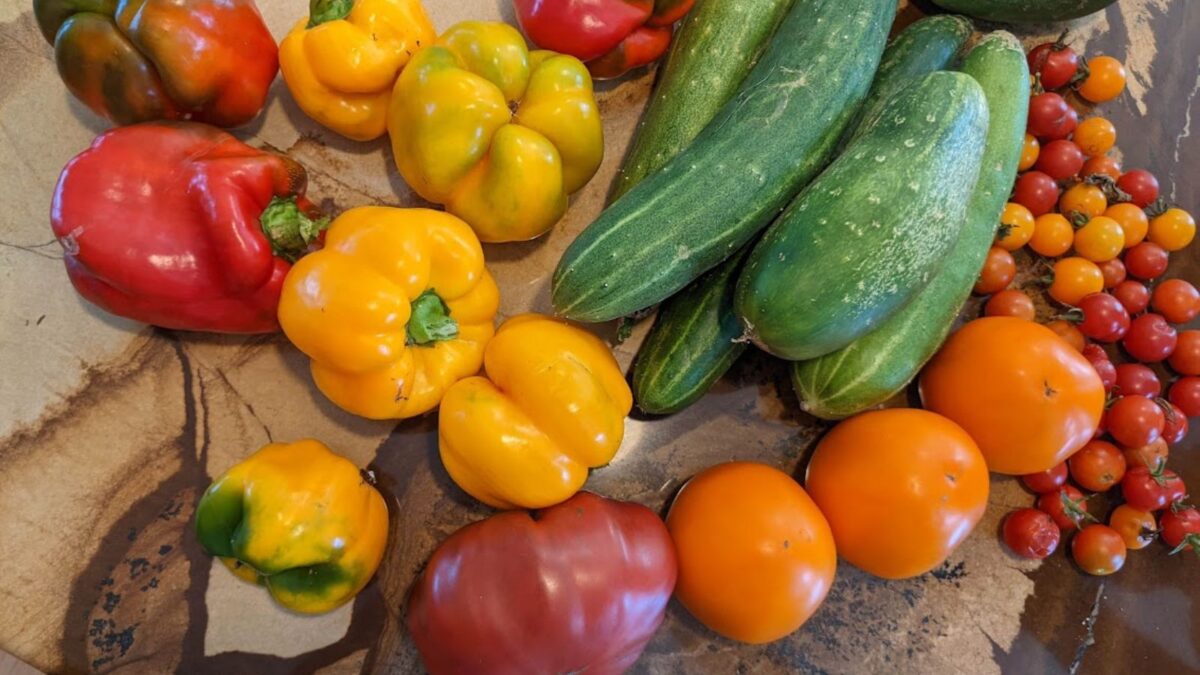
In fact, the earliest humans engaged in gardening activities. They didn’t build gardens for pleasure but rather for food. This practice is called forest gardening, the most ancient form of gardening. When your cave-dwelling ancestors came across plants, trees, and vines that bore fruit and other edible parts, they would cultivate them.
They eventually learned to harvest the seeds of these food-producing plants and trees so they could plant them wherever they wanted. That ancient practice demonstrates a benefit of gardening that some people still enjoy today … you can grow food right in your backyard.
To help you get the most out of your garden, I have compiled this report on gardening benefits for seniors and toddlers, middle-agers and 30-somethings, and everyone who loves nature (no matter how old you are). You will discover that you help the environment when you garden regularly and that there are social, mental, physical, and even financial rewards.
Let’s get started exploring the benefits of home gardening for your emotional health.
Benefits Of Gardening
1. Gardening boosts your mood

A study confirmed one of the many benefits of gardening you are probably very familiar with … it makes you feel good. Researchers found that fooling around in your garden can quickly relieve stress. Volunteers were asked to take on a difficult task. Upon completion, half were told to go outside and garden for a half-hour, while the other half of the participants went inside and read.
While reading is a great stress reliever, the gardeners reported substantially better moods than their book-bound counterparts. This wasn’t surprising, as the volunteers who were ordered to garden showed significantly lower cortisol levels in their bodies.
Cortisol has received the well-earned nickname of “the stress hormone”, because as cortisol levels rise, so do depression, stress, and anxiety. As cortisol levels decrease, endorphins and other “feel-good” chemicals and hormones rise. This emotional advantage of gardening is why many green-thumb folks spend time gardening before and after their stressful jobs.
Many other studies show that spending just 15 minutes with Mother Nature can have the same effects.
You are a product of nature. All people are. So, it only makes sense that your mind and emotions are happier when you spend time in nature daily. Even if you aren’t actively gardening and you just spend time outdoors sitting in a comfortable chair and admiring your rock garden, flower garden, or herb garden, you get the same depression-defeating, stress-relieving, mood-boosting results (and you get those good feelings quickly).
2. Environmental benefits of gardening?
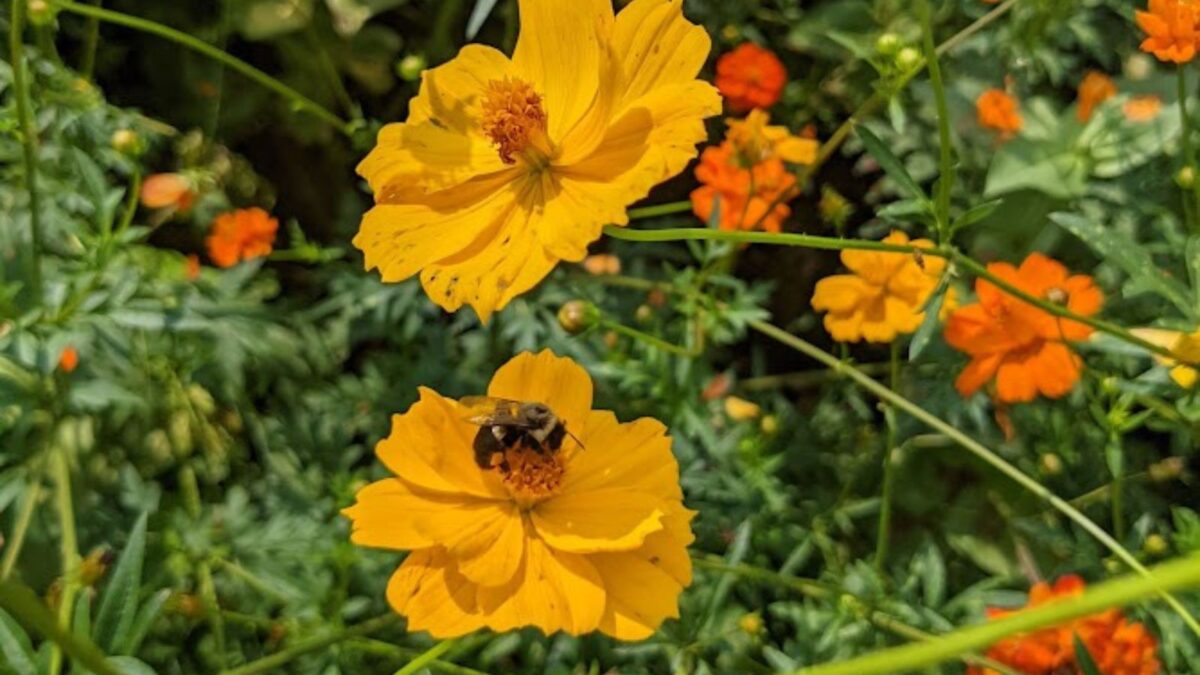
My husband and I both garden because we love it. We are well aware that we are improving our lives in lots of ways, but we mainly do it because it makes us feel good and we like growing things. We both hate that corporate farms often ignore and sometimes intentionally put the ecological and environmental health of our world at risk simply to make a quick buck.
Our love affair with gardening means I am quick to want to share this super gratifying hobby with others. It is a wonderful added benefit that your garden (however humble or grandiose it may be) is helping the environment.
When you grow food in your backyard or somewhere near your home, you reduce food transportation costs. This also minimizes water runoff and the negative impacts large food manufacturing companies have on the environment. Plants absorb carbon dioxide from the air, which means less harmful CO2 for you and your loved ones to breathe.
While the plants in your garden are sucking in as much carbon dioxide as they can, they are simultaneously breathing out oxygen! This means your backyard garden makes you healthier by providing more life-giving oxygen required by every cell in your body.
Any time you grow a garden that produces food, you reduce the overall level of pollution in the world. You just walk into your backyard instead of driving your pollution-producing vehicle to the store to buy groceries. This limits the amount of food you have to get from global food manufacturers that could care less about adopting sustainable, clean gardening and farming practices.
When you garden, you also help the planet you live on because you use little or no pesticides and chemicals to grow your food. This single benefit of gardening makes Mother Earth happier and healthier and also improves your mental and physical health.
3. Physical health benefits of gardening
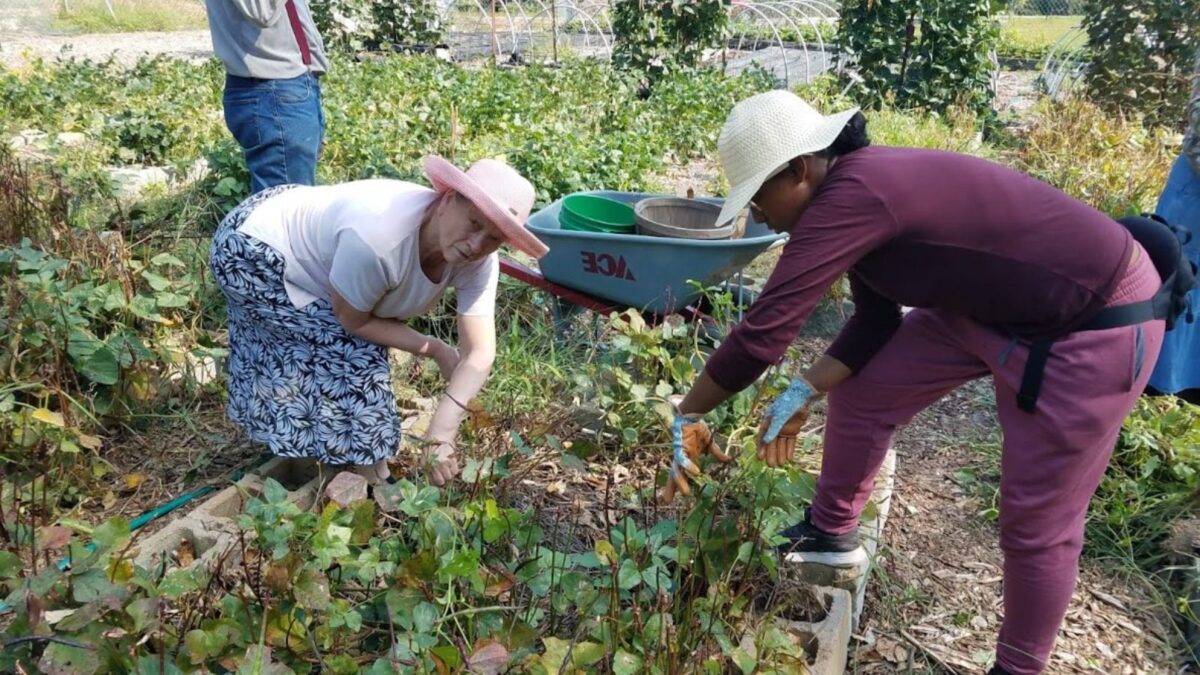
In case you haven’t noticed, I love gardening. I built this website because I love nature and want to share it with the world. I have seen gardening positively change my life in so many ways, and I know you can enjoy the same positive rewards that can truly help so many areas of your life.
Whether you regularly think about your physical well-being or not, I am betting you would rather be living and breathing than the alternative! Fortunately, the versatile nature of gardening means you receive many physical health benefits.
We talked earlier about how gardening helps regulate your hormones so that you feel more positive than negative emotions. It does the same thing chemically with the many processes that determine your physical health. When you expose your skin to the sun for just 15 minutes, your body turns that exposure into an entire day’s supply of vitamin D. Vitamin D is necessary for you to absorb calcium so you grow and maintain healthy bones properly.
The physical benefits of gardening include more muscle growth and stronger muscles, reduced blood pressure levels if you have high blood pressure, a healthier heart rate, and better skin and hair.
If you are sweating as you are gardening, that’s a good thing. Sweating is one way your body gets rid of toxins, poisons, dead skin and other waste material. Combined with the vitamin D you create while you are out in the sun gardening, this means you have healthier, stronger skin. Of course, you want to wear a hat and make sure you use some type of protective sunscreen so you don’t overexpose yourself.
Studies show that you only need to engage in 2.5 hours (150 minutes) of moderately intense physical activity each week to lower your risk of having a stroke or heart attack. This could be the time you spend in your garden.
As human beings age, they slowly lose dexterity and strength in their hands. Without thinking about the process, you use your hands hundreds of times a day. Another of the physical health benefits of gardening is improved dexterity and strength in your hands.
Remarkably, when you dig in the dirt and get some physical contact between dirt and your fingers, this helps boost your immune system.
Your immune system is a complicated collection of processes and body parts that works hard to keep you healthy. There is a bacteria in the soil named mycobacterium vaccae. It exists not only in garden dirt but also in vegetables and can be inhaled or ingested. Dig in the dirt frequently and your immune system becomes stronger because of this “good” bacteria.
It has been known to help treat symptoms of psoriasis, asthma, and allergies, it helps alleviate depression, reduces stress and anxiety, and since it improves your overall immunity. This aspect of gardening boosts your ability to fight all illness and sickness and helps you recover quickly if you ever suffer an injury or disease.
4. Gardening benefits for mental health

Your emotions are largely dictated by hormones. Your brain and nervous system have a lot to do with what hormones are produced. This is why when you are mentally peaceful and happy, you enjoy feelings of calm, serenity, and joy. When you are in a bad place mentally, you naturally experience and display negative and unhappy emotions.
This is why one of the most important mental health benefits of gardening is stress relief. The chemicals we talked about earlier that promote positive emotions are produced when you spend time gardening and out in nature. Isn’t it wonderful that all you have to do is grab your garden tools and head to the backyard to give yourself the wonderful gift of stress relief and peacefulness?
While being able to de-stress by just sticking your spade in the dirt is amazing, there are some other rewards of gardening that boost your brain function.
The American Association of Retired People (AARP) has discovered that you enjoy a decreased risk of developing dementia and other significant mental health problems when you garden regularly. This is certainly a benefit of gardening for older people, and the research AARP shares shows that gardening also lowers the chances of developing Alzheimer’s and other forms of dementia when it is practiced by younger people as well.
Nearly 3,000 people over the age of 60 had their health and hobbies tracked for 16 years. The research showed that those who gardened were 36% less likely to develop dementia. Data collected from tons of research papers reveal that people who began gardening as younger adults and continued to enjoy the hobby when they were senior citizens were also less likely to develop mental disorders like dementia.
Spending time in your garden helps your mental state of being by connecting you with the earth. You feel like you
- are a part of nature
- have a purpose
- a sense of accomplishment when you see the results of your hard work
- the sense of responsibility you feel to keep your plants healthy makes you feel good about yourself.
This mental health gardening therapy benefits the young and old, men and women, and works whether you have a small windowsill garden or an acre of vegetables in your backyard.
5. Gardening benefits for seniors and the elderly
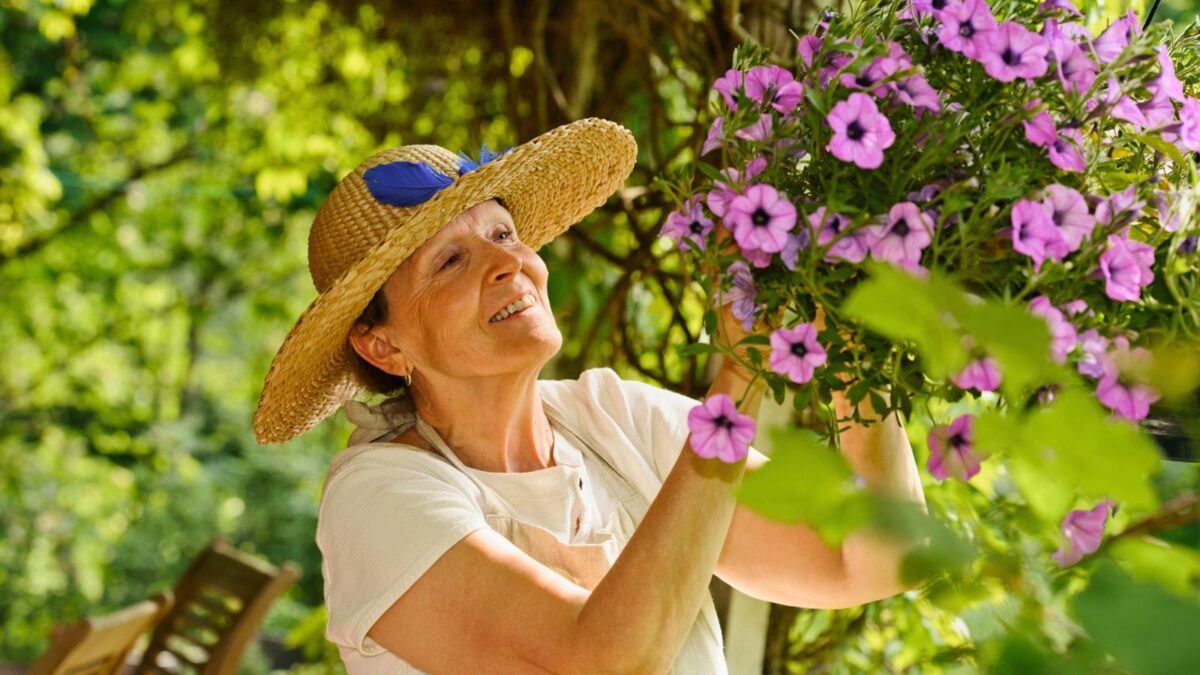
Many of the rewards of gardening enjoyed by those over 50 or 60 years of age are quite substantial. Some of them are experienced by gardeners of all ages, such as an emotional boost.
In many ways, gardening is the perfect mind and body therapy for women and men past middle age. It is a simple fact that we sometimes can’t do what we used to do once we have lived on this earth for 5 or 6 or 7 decades. We don’t have the physical strength and muscle we did when we were younger. Sometimes, we feel as if we have no energy. Mental health starts to decline as well.
Fortunately, gardening helps older folks in all those areas.
Gardening is an enjoyable and low-intensity form of exercise. This makes it perfect for people who can’t perform more intense exercises that are hard on the joints. Gardening benefits for seniors include increased flexibility and mobility. Often, retired people complain that they feel useless, and a regular gardening practice gives those people a sense of purpose and responsibility.
Gardening has been proven to help prevent bone health problems like osteoporosis, and it helps reverse the natural loss of muscle mass, endurance, and strength as we age. By encouraging the use of motor skills, gardening decreases the odds that an elderly person will fall. Injuries from falling increase considerably once someone turns 60, and gardening can help keep that from happening.
Now that we have covered a few of the rewards of gardening for older adults, what can the youngest folks expect?
6. Gardening benefits for toddlers, preschoolers, and older kids
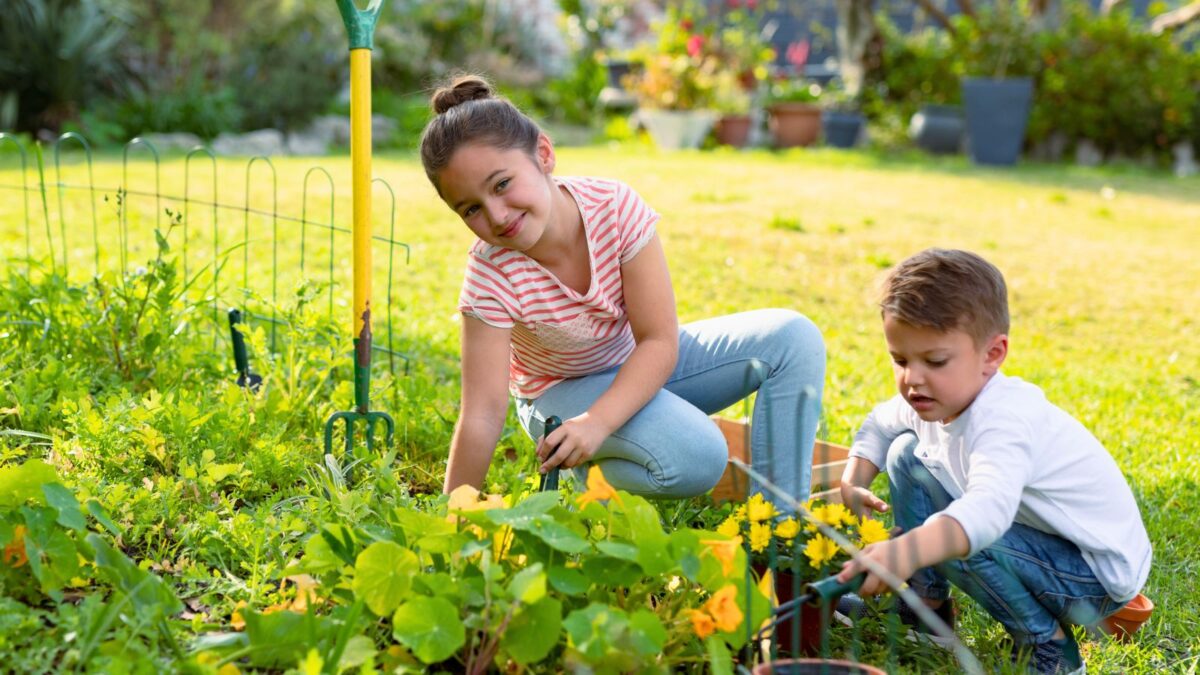
The bodies and minds of children are constantly growing. It doesn’t matter whether a child is 2, 6, or 12 years old, the human growth process is constantly working. Positively impacting different types of growth is possible by introducing gardening to children of all ages.
When you expose your child to different kinds of gardening, you enhance her creativity. She learns that gardening can be used as an art form as well as to grow food. Getting your kids to join you in the garden at a very young age ensures fine motor skill development. Your kids enjoy improved respiratory and heart health because they are exercising and breathing in air from the great outdoors rather than the manufactured air in your home while they stare at their phones or computers.
Children learn the natural and scientific processes which turn an inanimate seed into a growing, living thing. The responsibility, purpose, and pride a child gets when his efforts raise a seedling into a full-grown plant or flower are priceless. Planning and organizational skills are boosted, and you can teach your child to appreciate and take care of the environment through gardening.
Talk with your friends and neighbors that also have children. Build a community garden if you can. Have your child give a flower gift to a friend. These practices help kids learn healthy socializing behaviors that positively impact their lives when they are away from their homes, and these skills help them as adults. There are so many amazing advantages of gardening for kids.
If you don’t have children of your own, you can work with a local school or library to help introduce this incredibly beneficial hobby to kids in your area. There are probably children out there right now who are not receiving positive influences from their elders, and sharing your love of gardening could help them in so many ways.
7. The many benefits of community gardening

So far we have talked about the rewards received mostly from individual gardens. Community gardens have a lot to offer. A group of individuals in a neighborhood come together to build and cultivate a garden of some kind. Community gardens are often used to produce vegetables, herbs, and fruits that can help people adopt healthy eating practices and even save some money at the grocery store.
The benefits of a community garden include social health. Neighborhoods and communities that have built these types of project gardens report lower crime levels and improved social support. This is because people invariably get to know each other, and since they are all working towards a common goal, it is easy for them to empathize with one another.
Community gardens are sometimes built for decorative purposes only. The great beauty of a multicolored and aromatically tantalizing garden benefits anyone who sees or smells it. Everyone who encounters this type of gorgeous garden experience receives the depression-fighting, stress-relieving benefits we mentioned earlier.
The ecological rewards are huge. Previously unused acres of land turn into providers of fresh fruits and vegetables. The overall sense of pride in the community is enhanced. People move from their couches to their garden tools and in the process become physically healthier. Community gardens provide a feeling of social connectivity that mushrooms out and influences the development of other positive, community-based endeavors.
The benefits of gardening for individuals are shared by you and your neighbors when you build a community garden.
8. Benefits of urban gardening
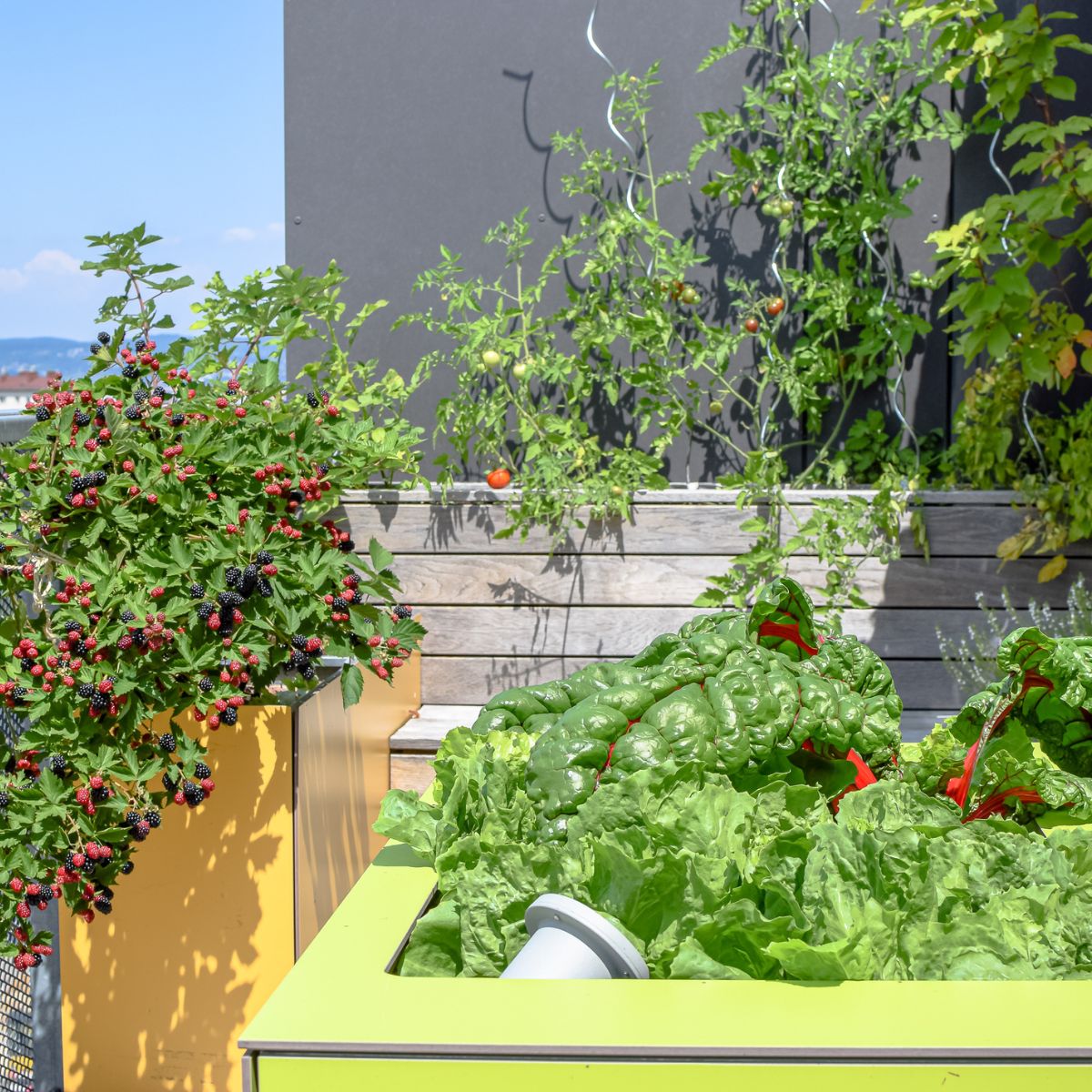
Many community gardens are built in urban areas. In many cases, the introduction of gardening to urban communities is the first time the idea of growing food locally has ever been entertained. The term urban applies to the largest localized collections of human beings. This means most urban areas have high populations (big cities like New York and San Francisco), and this, unfortunately, means a lack of healthy food choices in many cases. Urban gardens can change that.
One of the benefits of urban gardening is improved creativity. Finding a land where you can grow something is often a task in a big city. This means creative juices have to get flowing so that window boxes, community spaces, and rooftops can be transformed into gardens. A lack of wide-open spaces means innovative techniques are often developed.
One example is the vertical aquaponic gardening system named The Growing Experience in Long Beach, California. In limited horizontal spaces, a vertical gardening approach using aquaponics consistently produces 3 to 4 times as much produce as traditional, “old school” farming methods, and less water is needed.
Since fruits and vegetables have to travel thousands of miles to reach some cities, urban gardening benefits include fewer carbon emissions and cleaner air to breathe. Economic growth often occurs because people are creating their own food supplies. This means less money spent on groceries which profit some far-flung food manufacturers, and more money spent locally.
Large urban farms can create job opportunities, food quality is improved, public health receives a positive boost in a number of ways, and previously sedentary individuals begin to embrace the physical nature of gardening. Gardening can help just about anyone, anywhere in so many ways, and urban gardening proves you don’t always need a lot of green space and naturally occurring dirt to reap those rewards.
Gardening benefits are endless
Whether you are young or old, the physical benefits of gardening include increased mobility and flexibility, more strength and balance, and better fine motor skills. Your brain and emotions benefit, you begin feeling better after just a few minutes in your garden, and neighborhood projects like urban gardens and community gardens make your little corner of the world better for everyone.
You also improve the health of the planet as well as your loved ones.
Make sure you get out in your garden today. If you haven’t started a garden yet, I will be happy to help you in any way I can. I am a big believer in the many benefits of gardening, and as a way to thank you for stopping by my little corner of the web, I want to help you get those benefits, too. No matter how you want to improve your health (mentally, emotionally, or physically), gardening can help. Thanks for spending this time with me talking about a subject I love, and here’s hoping you experience the many substantial benefits of gardening regularly … just like I do.


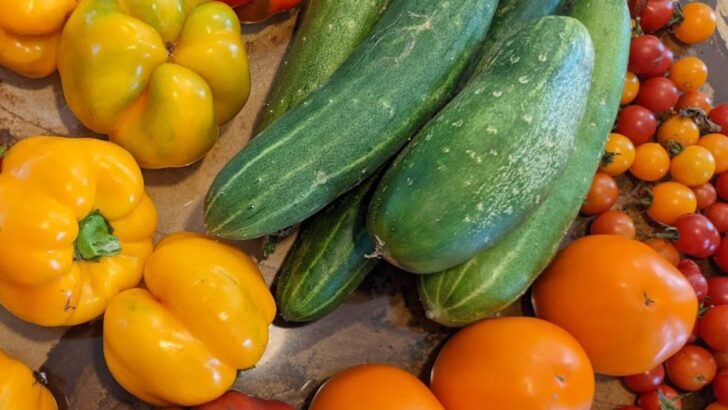

Proper Watering Techniques For National Water A Flower Day (May 30)
Thursday 27th of May 2021
[…] We all know that watering is good for the plants, but did you know that it provides benefits to you too? Caring for flowers and other plants reduces stress and helps improve our overall mental health. This means that plant care doubles as a form of self-care. […]
4 Fun Ways To Celebrate National Garden Month (April)
Tuesday 30th of March 2021
[…] colorful flowers, fresh vegetables, and so much more. As a gardener, you already know that gardening offers innumerable benefits to individuals and their communities as well as […]
Vegetable Gardening For Beginners - Everything You Need To Know
Wednesday 24th of April 2019
[…] see more benefits of gardening here […]